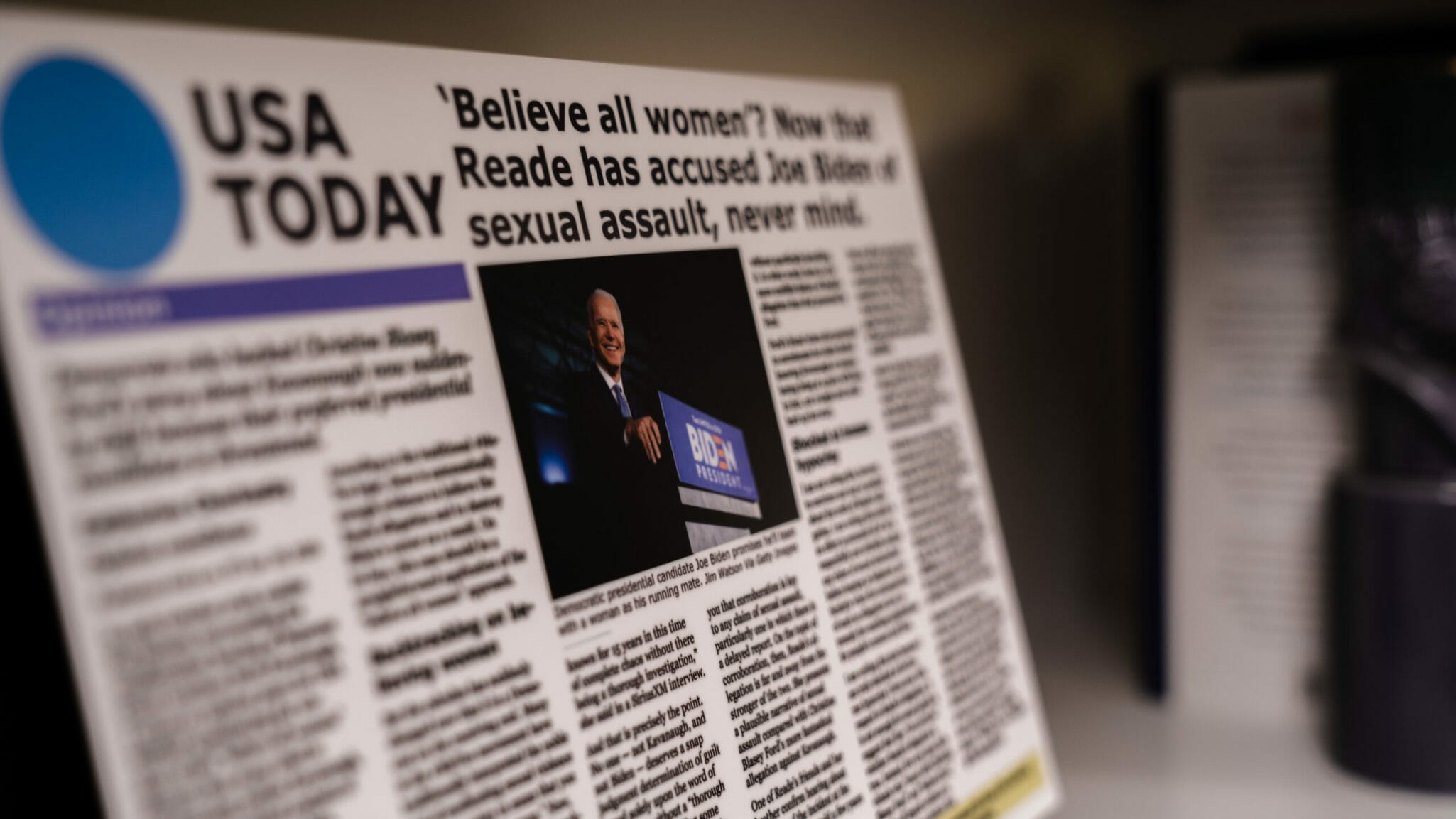At Golden Law, one reason we know how to defend you against military sexual assault charges is because we prosecuted those cases ourselves. In fact, Andy Cherkasky was a member of the Air Force’s “Special Victims Unit,” a team of elite trial attorneys that handled the military’s most difficult cases. Now that we wear suits instead of uniforms, we use what we learned as prosecutors to deliver your best defense.
With increased Congressional pressure on the military to prosecute sexual assault cases to the fullest extent under the law, military prosecutors routinely use certain strategies to try and win at trial. Here’s what to expect from the prosecution and how Golden Law responds:
Attempt to “Corroborate” Even Irrelevant Details
In order to try and establish the truth of an allegation, prosecutors attempt to “corroborate” even irrelevant details of an accuser’s account. Just as examples, we’ve seen prosecutors find weather reports from the date of the allegation just so they can say the accuser is telling the truth when he or she says it was raining. We’ve seen prosecutors show pictures of the room where the allegation occurred, even if those pictures were taken months later, just to say the accuser is telling the truth about what the room looked like. We’ve even seen prosecutors try and use data from an app on an accuser’s smartphone that tracked the accuser’s sleep patterns just to say that the accuser is telling the truth that he or she was asleep shortly before the alleged sexual assault occurred.
These are all attempts to “corroborate” even irrelevant details of an accuser’s story. Golden Law attorneys confront these attempts head on. Although details matter in any criminal case, we show the jury how the prosecutor’s attempt to corroborate irrelevant details just shows how desperate the government is to win the case. When you don’t have good evidence, you use weather reports instead.
Rehearse the Accuser’s Testimony
The most dramatic moments in any court-martial are often when the accuser testifies. It can be emotional for all people involved. Prosecutors know that having a believable accuser is critical to winning at trial, so they do everything in their power to build up that person’s credibility.
This includes rehearsing the accuser’s testimony time and time again. It is not uncommon for an accuser to “run through” his or her testimony three, four, even five times before trial. Prosecutors may even put the accuser through a “mock cross-examination,” during which the prosecutor pretends to be a defense counsel and questions the victim.
But these “mock” exercises never measure up to a Golden Law cross-examination. We work tirelessly to attack the details of an allegation and investigate the truth of an accuser’s story. We are prepared for every angle during cross-examination, even when the prosecutor has spent hours preparing the accuser to testify.
Argue that the Accuser Has “No Reason to Lie”
One of a military prosecutor’s most utilized strategies is to argue to the jury that the accuser has “no reason to lie.” Seasoned prosecutors will often explain that the military justice process is difficult for accusers, that they go through an emotionally draining process, including a powerful cross-examination at trial. “Why would an accuser lie about sexual assault knowing that they would have to endure such a difficult process?”
The answer is simple. People lie for any number of reasons. An accuser’s motives to lie can include wanting to avoid trouble with a spouse, wanting attention from those around them, seeking to gain financially or professionally, damaging the reputation of someone they don’t like, or lying simply for the sake of lying. That’s right – some people lie just because they can. And when accusers initially report their allegation to law enforcement, true or not, they rarely realize that they will have to testify at court-martial months later. By the time that case gets to trial, an accuser may be stuck with the lie and have no way out.
Having an experienced defense counsel that can explain this reality to a jury is the only way you can be sure you are presenting your best defense.
Take Your Words Out of Context
Finally, military prosecutors search high and low for times you’ve talked about the allegations in the case. That’s especially true when you’ve asked for an attorney before speaking with investigators. Prosecutors want to know what you have to say about the allegations. They will interview your friends, family members, neighbors, co-workers, and supervisors. They will search your phone (and the accuser’s phone) looking for times you’ve talked about what happened.
And when they find out about what you said, they will try to use your words against you. We see this a lot in text messages. For example, you may have texted the accuser sometime after his or her allegation that you were “sorry” or that you wanted to “take responsibility” for your actions. When you said that, you may have meant that you were “sorry” that the accuser felt something wrong happened when you believed something consensual happened. You may have meant that you wanted to “take responsibility” not for a sexual assault but for a genuine misunderstanding between you and the accuser.
Military prosecutors will use your words as an admission of guilt. “Why would he apologize if he did nothing wrong?” You need an experienced defense counsel to bring some common sense to the courtroom, to explain to a jury that words like “sorry” and “take responsibility” aren’t always an admission of guilt. They may simply be evidence of a good person trying to account for an honest misunderstanding.
When seasoned military prosecutors use these strategies, you need a team of experienced defense attorneys fighting for you.







